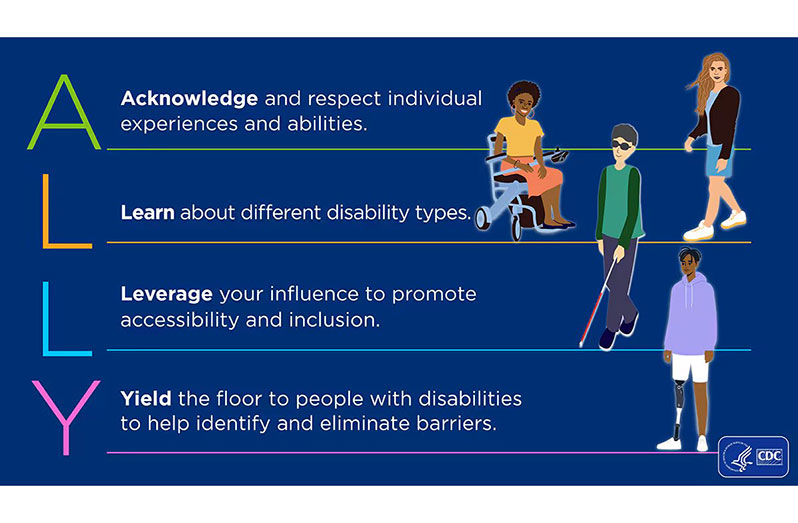PEOPLE living with disabilities have rights just like every other human being. In Guyana, these rights are protected by international human rights declarations as well as local laws and policies. However, despite these protections, access to certain spaces—both online and physical—remains challenging.
One of the biggest challenges for persons living with disabilities is access to public spaces, such as buildings and parks. Essential facilities, such as disability-friendly restrooms and wheelchair ramps, are often unavailable in Guyana. Public transportation is another major issue. I can personally recall witnessing a man in a wheelchair struggling to get into a taxi at a car park. Every driver passed him by because accommodating his needs would require assisting him into the car and packing his wheelchair into the trunk. Most drivers lacked the patience for this—all except one, whom he finally convinced. This is the daily reality for many persons living with disabilities.
In the digital space, people with disabilities also face barriers to accessing information and content. Users with auditory, visual, or cognitive impairments often struggle to navigate online platforms. It is crucial to acknowledge that persons with disabilities deserve the same respect and dignity as anyone else. To deny them access to essential services or to overlook their needs is blatant discrimination.

I encourage the relevant authorities, such as the National Commission on Disability, to take charge in advocating for further developments in infrastructure, services, accessibility, healthcare, and policy reform that includes persons with disabilities. However, beyond institutional action, the most critical aspect of this issue is raising awareness and educating the Guyanese public about the challenges faced by people living with disabilities.
Imagine being born with a disability or developing one over time, only to find that the world is not built for you. How fair is it to expect persons with limited mobility to lead fulfilling lives while providing them with little to no tools to do so? I have written before about the inaccessibility of certain goods and services in Guyana for people with disabilities, but today, I want to emphasise that awareness alone is not enough. Education and advocacy can only go so far—we need enforcement of existing policies and genuine commitment to making a change.
People with disabilities are protected by human rights laws that grant them access to employment, housing, healthcare, and safe public spaces, among other rights. However, these rights should not only exist on paper—they should be actively upheld in real life. Moving forward, I hope that we continue to respect and support people living with disabilities while ensuring they have access to the opportunities they deserve.
Advocacy does not have to be a grand movement—it can begin with small, individual actions. Employers should ensure that their workplaces are accessible, with safe stairways or ramps for employees and customers with disabilities. Business owners should make entrances wheelchair-friendly and consider offering services in sign language. If you know someone in your community who is struggling without support, you can help them access social services through the Ministry of Human Services. Community members can also take small but meaningful steps to ensure that persons with disabilities have access to necessary goods and services.
If each person reading this column takes even one small action to support someone with a disability, our collective efforts will create a more inclusive and accessible Guyana.





.jpg)








